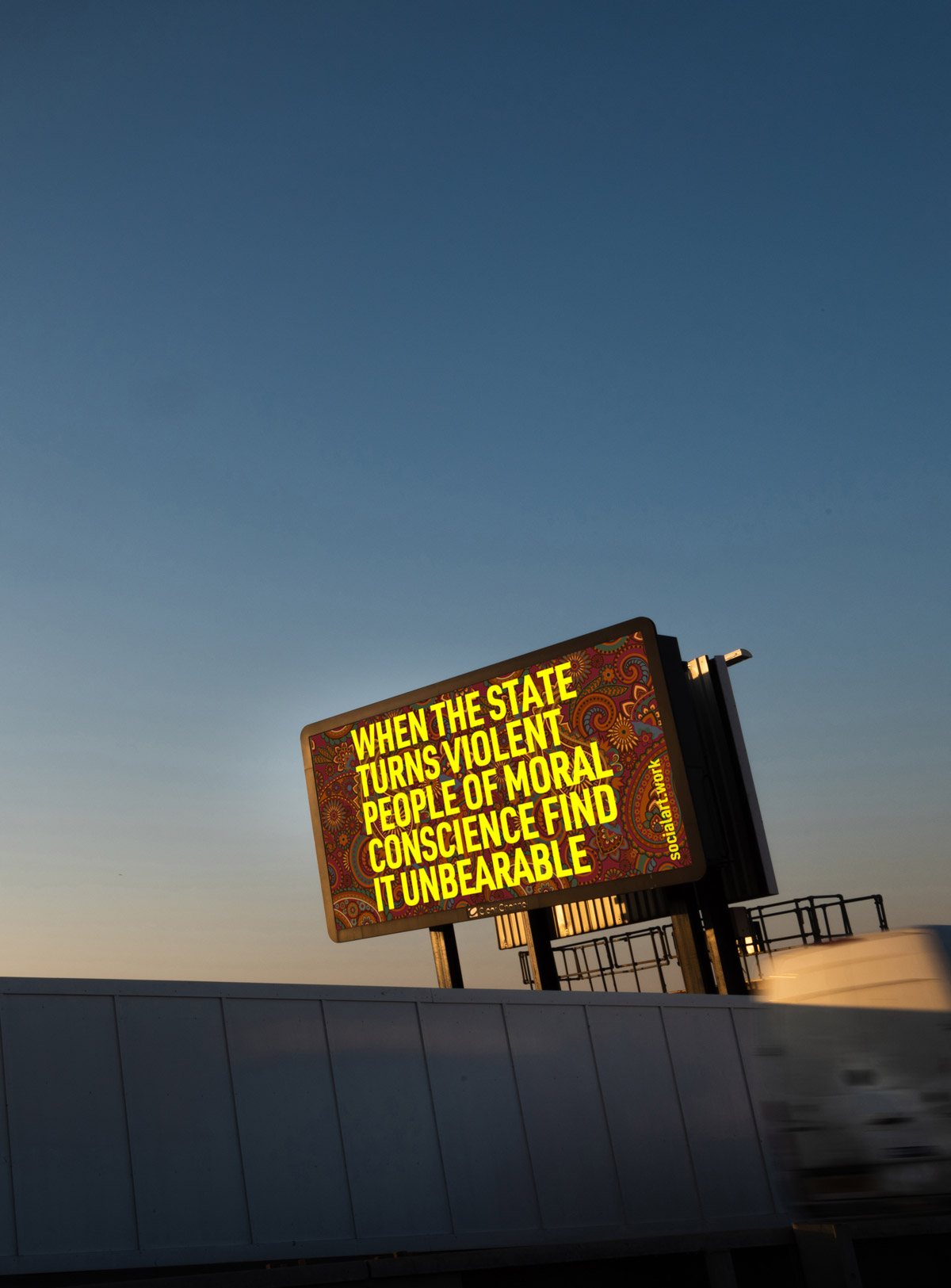We use the cookies _ga, _gat, _gid to collect anonymous data about how you use this site. OK.
When the State Turns Violent People of Moral Conscience Find It Unbearable, 2019
The artist quotes Clare Short, Labour MP for Birmingham Ladywood (1983-2010), Secretary of State for International Development (1997-2003).
NOTE
Clare Short (born 1946) began her career as a civil servant. She was Member of Parliament for Birmingham Ladywood from 1983 to 2010 and served as Secretary of State for International Development from 1997 to 2003. She resigned from the cabinet in protest against the Iraq War. She resigned the party whip in 2006 and served the remainder of her term as an independent politician.
The text
When the State Turns Violent People of Moral Conscience Find It Unbearable
is intended to challenge state and police brutality and point to the superior power of non-violent resistance.
In conversation with the artist, Short referred to the Irish playwright and politician Terence MacSwiney.
NOTE
Terence James MacSwiney (1879 – 1920) was an Irish playwright, author and politician. He was elected as Sinn Féin Lord Mayor of Cork during the Irish War of Independence in 1920. He was arrested by the British Government on charges of sedition and imprisoned in Brixton Prison. On 26 August, the British Government announced, 'The release of the Lord Mayor would have disastrous results in Ireland and would probably lead to a mutiny of both military and police in south of Ireland.'
MacSwiney's hunger strike gained world attention. The British Government was threatened with a boycott of British goods, and a strike by Americans. Four South American countries appealed to the Pope to intervene. Protests were held in Germany and France. An Australian MP, Hugh Mahon, was expelled from the Australian parliament for 'seditious and disloyal utterances at a public meeting', after protesting against the actions of the British Government. Two weeks later, the Catalan organisation Autonomous Center of Employees of Commerce and Industry (CADCI) sent a petition to the British prime minister calling for MacSwiney's release and the organisation's newspaper,
Acció (Action),
began a concerted campaign in his defence.
Attempts at force-feeding were made in the final days of his strike. On 20 October 1920 he fell into a coma and died five days later after 74 days on hunger strike.
MacSwiney was elected Sinn Féin Lord Mayor of Cork in 1920. Speaking of Ireland’s then British rulers he said, ‘They can’t take from us our power to suffer and endure.’
MacSwiney died in a British Prison after a 74 day hunger strike but his death propelled the Irish struggle for independence into the international spotlight.



